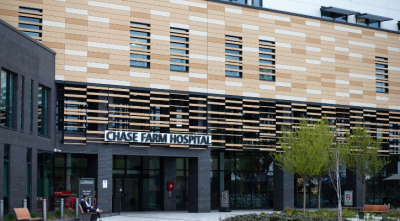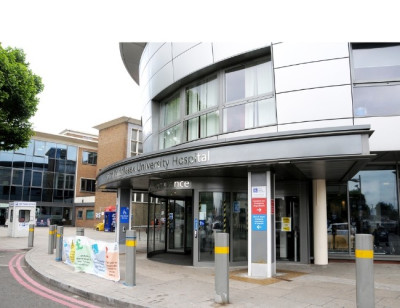Endometriosis is a non-cancerous gynaecological disease where tissue similar to that which normally lines the inside of the womb is found outside the womb.
The cause for this is still unclear, but the disease affects one in 10 women of reproductive age and can lead to pelvic pain, painful periods and difficulty falling pregnant.
Our team aim to provide patients with the best possible treatment for their symptoms and support them through every step of their journey.
Treatment for endometriosis is generally divided into medical and surgical therapies.
Medical treatments include hormonal alterations, while surgical treatments aim to destroy or remove as much of the endometriosis deposits as possible.
At the Royal Free Hospital and North Middlesex University Hospital, we offer both medical and surgical treatments for endometriosis.
Women experiencing endometriosis commonly present with pelvic pain. This can be severe period pain, pain during sex and pain throughout the menstrual cycle.
Uncommon symptoms include pain when opening your bowels, pain when you pass urine, and, very rarely, blood in the urine or faeces.
Endometriosis can be diagnosed with an ultrasound scan when there is evidence of an ovarian cyst. However, many women have endometriosis without ovarian cysts, making diagnosis more difficult.
A keyhole surgical procedure called a laparoscopy can diagnose and treat the condition at the same time. A very small cut is made within the belly button to have a look inside the abdomen and pelvis.
There are currently no accurate blood tests available for the diagnosis of endometriosis.
We advise women who are worried that they have endometriosis to visit their GP. Your doctor can refer you for a pelvic ultrasound scan, which has a look at the ovaries and womb. A normal ultrasound scan does not exclude endometriosis.
If the symptoms persist, your GP may offer you hormonal treatments including the combined contraceptive pill.
If you cannot take hormonal treatments or would like to be considered for surgical treatments, we advise you to ask your GP for a referral to our endometriosis clinic.
Patients are referred via the NHS e-Referral Service.
After a referral, a team of specialists will assess your case with close questioning and an examination. The questions may include very personal details to gain a better understanding of how the symptoms are impacting on your life.
The examination generally includes both an external and internal assessment.
The specialist will discuss their findings and make recommendations based on your preferences.
If test results have been submitted
The initial consultation will discuss the further tests available or treatment options if test results have already been submitted by your GP.
 Translate
Translate


